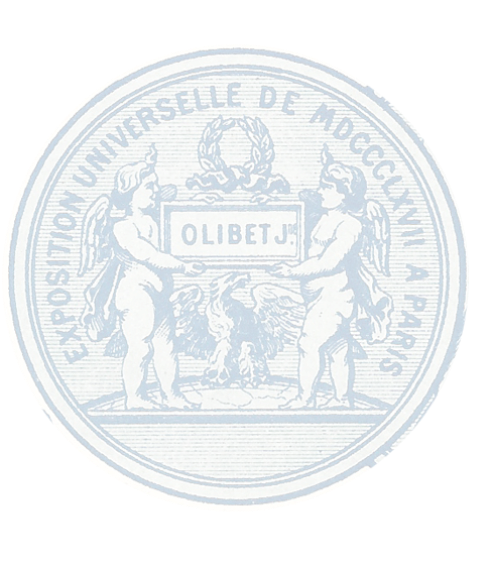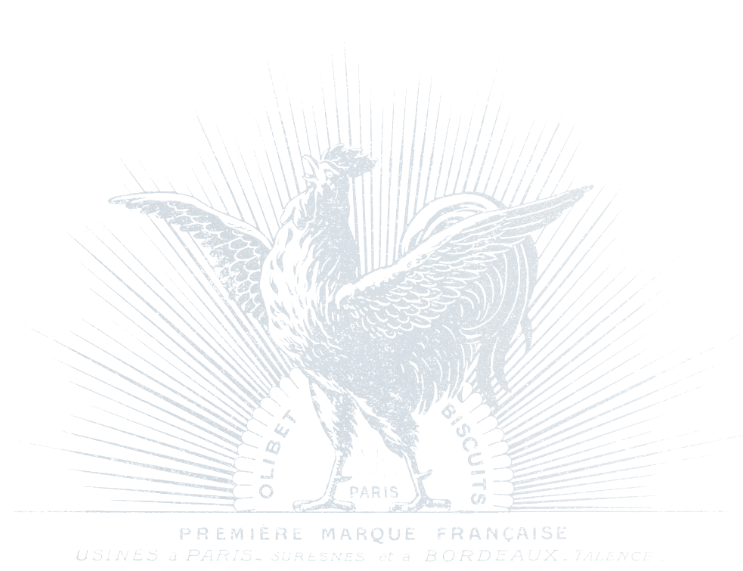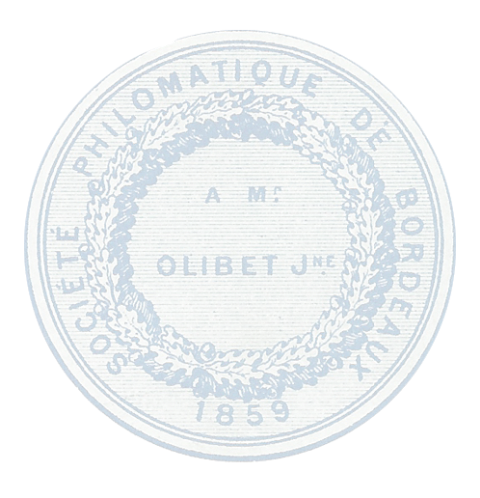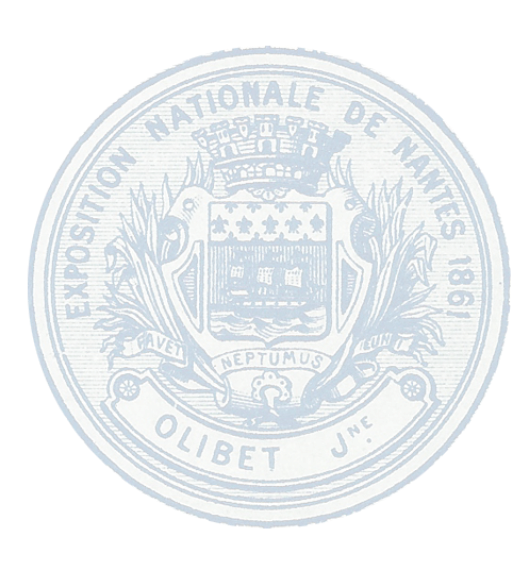
Around 1840, Jean-Honoré Olibet (1817-1891) moved into the Saint-Pierre neighbourhood of Bordeaux and started producing handmade dry biscuits. They were very popular with the seafarers of those days, as these biscuits could keep for a long time. But the young entrepreneur also started to produce fancy biscuits, to meet the demand from the middle classes.


A few years later, Jean-Honoré’s son Eugène (1844-1915), joined the business. Following a one-year stay in the United Kingdom around 1860, he persuaded his father to import some manufacturing equipment, notably a chain oven, commonly known as an “English oven”. And so Olibet “the Young & Son” pioneered their way to coverage of the whole French market, offering a wide range of biscuits with an “absolutely inimitable” taste…


In 1872, the OLIBET Biscuit Company opened France’s very first biscuit factory, in Talence (near Bordeaux). Three other factories followed: Suresnes (1879), Tassin-la-Demi-Lune in the Lyon region (1883), then Renteria, in the Spanish Basque Country (1895). At the same time, the “Premier French Brand” was piling up honours and medals, notably winning the gold medal at the 1889 Universal Exposition in Paris.


The success of OLIBET biscuits is largely due to the network of depots in major French cities, including one in the rue de Rivoli in Paris. These depots supplied the wholesalers and regional retailers, enjoying the brand recognition fostered by highly creative communication. OLIBET goes out of its way to involve many artists in proclaiming the quality of its products.


In the early twentieth century, the number of competitors grew, and after World War II, the advent of mass retailing posed a threat to OLIBET as its traditional allies, the small local shopkeepers, began to disappear. The company first filed for bankruptcy in June 1977, then went through restructuring and takeovers, until finally being wound up in 2012. Today, six generations after Jean-Honoré, the OLIBET descendants are out to revive their illustrious ancestors’ biscuits.


Reference works: Le Livre d’Or de la Gironde, various authors (R. Wagner, 1914), Le biscuit et son marché, Olivier Londeix (Presses Universitaires de Rennes, 2012), Echanges et métissage des cultures matérielles entre la Nouvelle-Aquitaine et les outres-mers, Michel Figeac (Maison des Sciences de l’Homme d’Aquitaine, 2021), Demi-Lune, Jean-Marie Pontaut (Fayard, 2005), Les Biscuits Pernot, Albert Ricois (Raison & Passions, 2007).
Museum exhibits: OLIBET is present in the Musée d’Histoire Urbaine et Sociale in Suresnes and the Musée Aquitaine in Bordeaux.
In the media: OLIBET on radio and television.